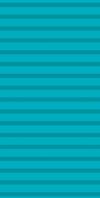















We work with a range of local businesses providing apprenticeships for 16-18 year olds with a reputation for innovation and excellence.


As a dynamic college serving the communities of Darlington, North Yorkshire and South West Durham, we work hard to ensure that our students get the best qualifications to help them onto university or into their chosen career.
Our philosophy is simple – we put the students at the heart of all our thinking and ensure they have the best possible learning experience during their time here. We are proud of our modern learning environment and continue to invest in our iconic site and improve the courses we can offer you - whether it’s a diploma, an apprenticeship or a foundation degree, there is something for everyone, whatever your age or ability.
I look forward to welcoming you to the college, and all the staff will do their best to help you achieve your potential in your chosen field.
Best wishes,

 Kate Roe Principal and Chief Executive
Kate Roe Principal and Chief Executive

We provide education and training to thousands of students each year, offering a huge range of courses to suit every level.
Our friendly Schools and Community Liaison team, Kirsty and Sam, work with secondary schools in Darlington, North Yorkshire, County Durham and Tees Valley to ensure a smooth transition from school into college. The team are involved in a variety of activities including, careers events, parents’ and options evenings and a post 16 pathway discussion with a year group or a discreet group. The team also organise our Year 10 taster event and tours in college. You will probably see them around your school throughout the year, so feel free to say hello, or email SchoolLiaison@darlington.ac.uk to arrange a visit.

Our experienced Admissions and Enquiries Team are on hand in our Student Services Centre to offer advice about courses, how to apply, enrolment, start dates and answer any general enquiries. You can also find our Guidance Services team, Student Finance and Student Support teams in the centre. We are always happy to help and no appointment is needed. Email admissionsandenquiries@ darlington.ac.uk

The Government have raised the participation age, this means that all young people must now stay in education or training until they’re 18. If you’re a Year 11 student at the moment or left school in the summer of 2022, you will be required to stay in education or training until at least your 18th birthday.
Our interactive open events, tasters and On Course to College evenings offer a fantastic opportunity to meet staff and students, to have a look around and receive advice about courses and careers. You will also find out about college life, student support and everything you need to know to help with the transition from school to college.









Founded in 1897, Darlington College, originally named ‘Darlington Technical College’ and later ‘Darlington College of Technology’, has been at the heart of our community for over a century.







From North Lodge Park to Haughton Road, we’ve made it happen for thousands of students and apprentices, who have not just learned it – they've lived it.





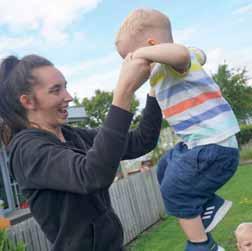
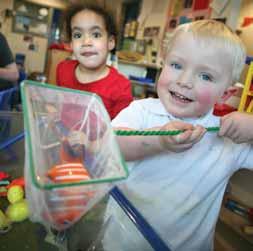 Martin Gray Football Academy
Martin Gray Football Academy
Darlington College welcomes applications from people with special educational needs and disabilities (SEND). We are committed to making sure that all students receive the additional learning support they need to access the college and achieve their goals. Sensitive and individualised support is available regardless of what course you choose to do.
We understand that leaving school and starting College can be difficult for some students and we can work with you to help you get used to the College before you start your course. This may include visits to the College, support at interview and meeting up with support staff.
Please let us know about your support needs as soon as you can. You can let us know about any support needs when you apply for your course. The Additional Learning Support team will contact you and arrange to meet with you to start to plan your support.
Alternatively, you can contact us before you apply for a course for a chat about your needs and to find out more details of what support you could receive at college. We also work very closely with local schools/SENCOs, the Local Authority SEN teams, Social Workers and other professionals who can support you to discuss your needs with us.
We are able to offer a variety of different services within the college: Support for exams with assessments for colour overlays and access arrangements from our Specific Learning Difficulties team.
Learning Support Assistants can provide a range of in class support strategies i.e. prompting or note taking, alongside personal care if required. Support can be tailored on an individual basis depending on student’s level of need.
We also have a wide range of specialist equipment including:
• Computers around the college have Read & Write Literacy Software
• Dictaphones
• Text reader pens
• Screen software for blind/low vision computer users
• Radio Aids
You may need to take exams/assessments as part of your studies. It is important that
you discuss any difficulties with tutors. This information will help our assessment team get you the correct arrangements.
The range of special arrangements may include:
• Extra time
• Alternative papers e.g. Braille, modified layout or enlarged text




• Use of low vision aids
• Modification of language
• Use of a reader
• Signed communication
• Use of a scribe
• Separate / Smaller room

You can ring us on 01325 503190 This number will get you direct to the Additional Learning Support Team. Alternatively you can email us at ALSTeam@darlington.ac.uk

Take a look at our fantastic range of courses and apprenticeships in this guide and online at www.darlington.ac.uk. If you’re still not sure what to study, our Guidance Team can help. Give them a call on 01325 503040 or speak to the Schools Liaison Team when they come to your school.
You’ve seen a course you want, now it’s time to come and see our great facilities. Make sure you come along to our open events (see page 3 in this guide or go to our website for details).
Apply online at www.darlington.ac.uk. If you can’t access a computer don’t worry just call Admissions on 01325 503030.
Once we’ve received your application, you will be invited to attend one of our On Course to College events; a hands-on experience where you’ll also have the opportunity to ask the tutor any questions you might have, and you can even bring your parents along.
You’ll be offered a place at the college subject to a satisfactory school report and pending GCSE Grades.*
*Subject to terms and conditions
Offer of places for Apprenticeships are subject to you securing employment prior to the start of your course.
If you haven’t secured employment by the time you have your interview, you will be offered a full time alternative. Once you have secured employment, just let us know and we will transfer you back to an Apprenticeship. After your exams you will get the chance to come and give your course a go at our Connecting to College event in June – save the date in your diary.
Monday 23rd Jan 2023
Monday 6th March 2023
Monday 24th April 2023
Wednesday 28th June 2023 – Connect to College


You will be sent information about our enrolment events which take place in August 2023. Don’t worry if your GCSE results aren’t what you were predicted, there is support, advice and guidance and there will be a course for you at Darlington College. See you soon.


Connect to College is a fantastic day that takes place in June, giving Year 11 students the opportunity to do a full day in college. You will get the chance to meet fellow students, meet your tutors, and explore the college.
Year 10 Tasters gives Year 10 pupils the chance to come into college and do a variety of tasters in different vocational areas to help with your next step choices. Year 10 Tasters are organised by the Schools Liaison Team and your school.
Learning Resource Centre (LRC)
The LRC provides access to books, DVDs, journals, Mac computers and other learning resources.
Competitive sporting activities available daily in our fantastic sports halls. Fitness training sessions also run in our own newly refurbished college gym.
Our brand-new professional classroom and conferencing space.
In-house printing facilities providing photocopying and stationery items for your everyday needs.


Perfect for sports and exercise with badminton, basketball, 5-a-side, football and volleyball being just some of the things you can take part in.
Hungry? The Food Court offers a wide selection of hot and cold food, including healthy options.
An excellent on-site childcare centre, rated outstanding by Ofsted.
Course information, student support, admissions, careers guidance and student finance.
A fine dining experience that is open to the public during term time for special themed evenings as well as lunch times, from Tuesday to Friday.
Commercially run hair and beauty salons, fabulous treatments at brilliant prices. Call 01325 503030 for appointments.

Enjoy a tasty hot drink located in Central Point.
National Student Survey 2022





Our Student Support Advisers are committed to helping you stay on-track with your work, giving you any extra support you might need. If you are having difficulties at home or college and need someone to talk to, our Student Support Advisers can listen and guide you in the right way.
We have a professional student counselling service to provide one-to-one confidential sessions to support you through personal and private issues, whilst you are studying at the college.


If you’re under 18 at the start of your course, parents and guardians are kept informed of your progress and attendance. They’ll get a report from us twice a year, and are invited to attend the parents’ evening.
Our support staff are dedicated to providing you with all the help and guidance you may need throughout your time at college.
“So helpful, funny and understanding. I couldn’t have got through this year without their support” Harriet
“My experience with student support at the college was great, they did a really good job and handled everything well” Isaac
At Darlington College we aim to provide financial help to students that need it the most. If you enrol on a full time course and are aged between 16-18 you could receive help with the cost of studying through our 16-18 Bursary.
Students aged 19+ and over can also apply for financial support. We encourage you to apply early, particularly if you are seeking assistance to pay for essential kit for your course. Download our application form or contact us to apply.
If you apply for one of our bursaries there may be assistance with travel if you live over a mile from the college.
Assistance includes:
• Support towards the local authority bus pass for North Yorkshire students (16-18s). You can apply directly to North Yorkshire County Council (subject to change) at www.northyorks.gov.uk.
• Free Arriva student saver ticket for Darlington, County Durham, and Tees Valley students.
• Bus fare equivalent payment for students with their own vehicle.
You can receive a contribution for help with the cost of essential clothing, books, equipment and kits for your course. To be eligible you must have a household income below £45,000 (or below £45,000 for Advanced Learner Loan students).
If you are under 20 when you enrol on your course, you may qualify for childcare fees while you study through the Care 2 Learn Fund. Visit www.gov.uk/care-to-learn.
If you are 20 or over and have a household income of below £45,000 (or below £45,000 for Advanced Learner Loan students) you can apply for assistance with childcare fees.
To be eligible for free meals a student’s parent(s) should be in receipt of one of the following:
• Universal Credit with net earnings not exceeding the equivalent of £7,400 pa (after tax and not including any
benefits you get);
• Income Support; Income-Based Jobseeker’s Allowance; Income-Related Employment and Support Allowance;
• Child Tax Credit, provided you are not entitled to Working Tax Credit, and have an annual household income (as assessed by HM Revenue & Customs) that does not exceed £16,190;
• Support under part VI of the Immigration and Asylum Act 1999;
• Guarantee element of State Pension Credit;
• Where parent(s) are entitled to Working Tax Credit during a four-week ‘run-on’ period after they stop qualifying for Working Tax Credit, their children are entitled to free meals;
• Students aged 16-18 who receive Income Support or Income Based Jobseeker’s Allowance in their own right are also entitled to Free Meals.
A bursary is available for students who meet the following criteria:
• Currently in care or have previously been in care;
• In receipt of Income Support or Universal Credit (in your own right);
• In receipt of both Employment Support Allowance (ESA) and Disability Living Allowance (DLA) (or Personal Independence Payment – PIP) in your own name.
The Guaranteed Bursary supports students with £1,200 per year in the form of kits, essential equipment, books, meals and transport.
If you are aged 19 or above and want to study a full time Level 3 course, then you can apply for a loan to help pay for your tuition fees. The loans are not means-tested or credit checked and anyone who meets the criteria can apply whether you are employed or unemployed. If you are 19-23 you may be eligible for full funding if you have not already achieved a full Level 3 qualification.
For more information see www.gov.uk/advanced-learner-loan *Loans can also be made available for those taking a Part time course.
All funding information correct at time of print.
Please note we are not in a position to advise you about taking out a loan, nor can we assist in the completion of an Advanced Learner Loan application
Exploring your career options can sometimes seem a daunting task. At Darlington College we have a dedicated, qualified and experienced team of Careers Advisers on hand to help you research your options linked to your individual interests and skills.

Our team are fully up-to-date with the latest Labour Market Intelligence (LMI) and have strong links to industry and higher education which means that we are able to offer high quality, impartial guidance about the future job market in the region. We are committed to ensuring the right student finds the right course to allow them to take the next step towards landing that dream job.
Guidance Services offer the following
• Group workshops covering higher education, career choices and job search.
• UCAS Apply for students considering going to university or college HE.
• Personal Statement and CV clinics.
• Job search and how to improve your interview technique.
• University visits and HE fairs.
• One to one guidance appointments with an adviser to discuss your future options.
Contact the Careers Guidance Team today on 01325 503039 / 503040, or email
Students speak favourably about the quality of support and the benefits of having someone who is non-judgemental and accessible. Students report this reduces anxiety and helps them concentrate better at College.
Matrix was accredited for the third time in June 2022, a national standard for quality, so you’re in the best hands for receiving top advice.CAREER JOURNEY START AT: DARLINGTON COLLEGE 2020 - 2022
STUDIED: UAL LEVEL 3 EXTENDED DIPLOMA IN CREATIVE PRACTICE: ART, DESIGN AND COMMUNICATION













NEXT STOP: NORTHERN SCHOOL OF ART TO STUDY ILLUSTRATION
Studying many of our Level 3 courses here at the college will give you UCAS points which are required to progress on to a university level course. You will also gain that all important practical experience that university admissions officers are looking for. Once you have completed your course, there are lots of opportunities for you to choose from. Gaining a higher education qualification can help you get a better job, a higher salary and improved long term prospects.
A university level course at Darlington College offers lots of benefits:
• Part time or flexible study is available, so you can work at the same time to support yourself or your family.
• Save money on the cost of moving away and accommodation.
• Lower fees than many universities.
• Fantastic range of courses that fit in with employers’ needs.
• Partnership with Teesside University allowing the use of university facilities and progression to a full degree locally.
Choose from an extensive range of courses from higher national certificates and diplomas (HNC/Ds) to foundation degrees, which are all delivered in partnership with Teesside University here at Darlington College. Whatever you choose to do, we have expert careers guidance at the college to help you make the right decision. Our team will help you with UCAS applications and personal statements and make sure you fill in your student loan forms at the right time.
It’s time for your child to decide on their future career, and we can help by leading them on to the correct course of study. We want our students
we can to make sure that they get on the right path.
We keep in regular contact with parents and invite you in for discussions as-andwhen required. A formal parents’ evening is held in March every year, where you’ll get the chance to meet tutors and ask any questions you have. You will also receive a report twice a year to give you an overview of your child’s progress.
We take the wellbeing and safety of all our students very seriously. We strive to ensure a safe and welcoming environment in college, and have safeguarding and anti-bullying policies in place to ensure that young people and vulnerable adults studying with us do so in a safe and secure environment.
Student safety is always at the top of our agenda. The college has a safeguarding policy that is rigorously enforced and all matters relating to it are of the utmost importance to us.

Safeguarding contact: Julie Davison 01325 503036.



We offer a wide range of sporting activities for students to take part in. Our multiuse games area is perfect for sports and exercise. Badminton, basketball, 5-a-side, football, rugby and volleyball are just some of the things you can take part in.

We also have our brand-new gym extension with even more space to train alongside a new spin classroom for use outside of curriculum hours.
Students elected to these positions have vital roles to play. Student reps are involved in making decisions that help improve the quality of our courses. Reps appear on behalf of the college at events such as open events and parents’ evenings. Students can also meet with members of the governing body through the Student Liaison Committee.
As a class rep you can volunteer for the SLC which is a chance to talk about your views and opinions with some of the Governors of the college and make real changes.
If you are interested in how the college works then why not apply to become a Student Governor on the governing body of the college? You will learn new things and be part of decision making for the college. Full training will be given.
Volunteering is a great way to develop transferable skills and knowledge, improve your employability and gain valuable experience towards your course or future career.
Visit www.do-it.org.uk to find out more. The college operates a student ambassador scheme which allows you
to support events at college and your previous school. Email SchoolLiaison@ darlington.ac.uk for details.
Got a burning issue you’d like to discuss? The student voice group is your ideal opportunity to discuss anything you feel is important. We value your views and want to provide you with a quality experience throughout your time with us.
We regularly post announcements, student activities and news on our social media pages, so keep up to date by following us on the pages below:
Like us on Facebook
@darlingtonfe
Subscribe to us on YouTube
DarlingtonCollege
Follow us on Twitter, Instagram and TikTok
@darlingtonfe
We want you to feel part of college life and have your say about important issues.
you choose the right course and the right level. To start with you need to decide what you want to do to start your career. Look at the range of courses available and choose the right level.
These courses are for beginners and are designed to assist you in gaining the basic skills needed to progress on to other areas of learning at a higher level.
No formal qualifications are required, but a keen interest in the area is essential.
These courses are designed to allow you to gain the basic knowledge of jobs, business and industry and are the first steps to gaining a vocational qualification.
No formal qualifications are required, but you will be assessed on basic maths and English skills.
You will be required to attend an interview at the college for all courses and Apprenticeships and we will request a school or college report.
These courses include a diverse range of work activities and allow you to take more responsibility for your own studies.
4 GCSEs at different grades depending on the course of your choice, or alternatively a Level 1 qualification. Some courses don’t have direct entry from GCSEs; please refer to each individual course for further information.
These qualifications develop the specialist skills required for your chosen career. Level 3 courses prepare you for employment and are also recognised by universities, offering a great alternative to A-Levels.
5 GCSEs at different grades depending on the course of your choice, or alternatively a Level 2 qualification. Some courses don’t have direct entry from GCSEs; please refer to each individual course for further information.
These courses include a variety of complex, technical, specialised and professional activities that can help you develop the skills required for your chosen career. It is possible to study higher education and professional courses here at the college.
These can vary depending on the type of qualification you intend to study. Our Guidance Team may be able to help, call 01325 503040
Having good maths and English skills will help you progress further with your studies and will also help you secure future employment. In fact, by your chosen career.



How the proportions achieving each grade in the current grading structure are expected to align with the proportions achieving each grade in the new GCSE grading structure.
Students who have yet to achieve a grade C or above, or 4 points, in their GCSE English and maths, will be required to study either GCSE English or maths, or both, alongside their main course.

Our dedicated tutors work with all our students to ensure that they improve their level of maths and English to meet their specific needs. You will then be entered to re-sit your GCSE exam(s) the following June.




Above grade 4 equates to A*-C
A and above = same proportion of students as 7 and above



B-C = same proportion of students as 4-6
bottom of grade 1
be aligned with the bottom of grade G


Grade D = 3 Grade E = 2 Grade F = 1
Grade G-U = Entry level


The college offers a range of Apprenticeships giving you the opportunity to enjoy the independence of work, whilst achieving industry-recognised
employed and paid a salary.
If you are ready to commit to both work and study, then an Apprenticeship could be for you. Here are just some of the benefits of becoming an Apprentice:
• Apprenticeships offer a varied learning experience, it’s all about learning while you are doing, less time in the classroom and more time being taught on the job.
• You will be paid a salary by your employer – so you get to earn while you learn.
• Getting in to employment early means there is the potential for you to progress in your chosen career quickly and work towards earning a good salary much earlier.
The College offers Apprenticeship Standards across all areas of curriculum with all requiring 20% off the job training which would be set out by your assessor when you sign up as an Apprentice.
as apprenticeships can vary in how they are set out.
Entry on to an Apprenticeship is not entirely based on academic achievements although it is recommended that you have achieved at least 4s in English and maths as this is part of most employer requirements.
Apprenticeships typically take between one and four years to complete, depending on the type of training. There is no set time to complete an Apprenticeship as they vary in content and size. The length of time taken will depend on your ability and your employer’s requirements.
Apprenticeships will give you practical and transferable skills that employers want, so when you’ve finished you will have lots of experience and can apply for that all important promotion. You can also come back to college and study on university level or management and professional courses. Discover more about Apprenticeships in our course and Apprenticeship section.
Most entry requirements are subject to GCSE grades which will determine whether you start on a Level 2 or Level 3.
Level 2 – usually 4 GCSEs at grade D-E or a grade 2/3 or above including maths and English, but subject to employer’s/college’s discretion.
Level 3 – 5 GCSEs at grade A*-C or grade 4 and above including maths and English.















STUDIED:












Darlington College celebrates and values the diversity brought by all members of the college community and is committed to providing such services and support to enable all members of its community to achieve their full potential. The college aims to ensure that everyone is equally valued and treats one another with respect and dignity; seeking to provide a positive working and learning environment free from discrimination, harassment or victimisation.

To this end we seek to prevent behaviour which is not in line with the spirit of the college’s Equality and Diversity Policy. To view the full policy please visit our website www.darlington.ac.uk.
This publication is a general guide to college, our courses and facilities, and every effort is made to ensure complete accuracy. The college reserves the right to make changes to curricular content where appropriate. The information given in this publication does not impose

on the college any obligation to provide, or continue to provide any courses, modules or amenities described. The college reserves the right to cease to run a programme if insufficient students enrol. However, as far as possible, the college will accommodate individual requirements.
Any information can be produced in other formats on request. Please contact our Marketing Team on 01325 503046.






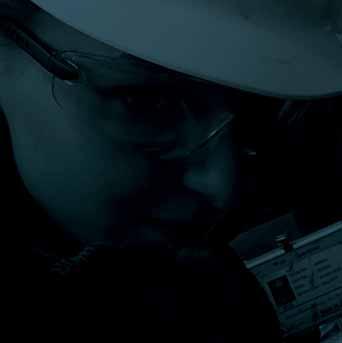

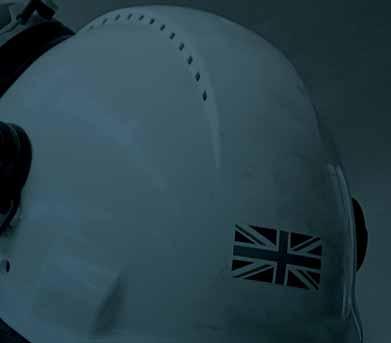



















This course has no formal entry criteria but learners need to positively demonstrate engagement with exams, with some achievements demonstrated (including grades and positive evidence of attempting GCSE English and Maths examinations).
Progressing Learners from within College; In addition, to demonstrate positive engagement and progress in English and Maths, and good attendance overall.
We will request a school or college report and you will attend an interview at the college.
This course is designed as a full time study programme route for 16-18 year olds only, or those whom hold an EHC plan. This course is not suitable for adults and additional charges will apply to those adults who wish to pursue this route of study.
4x GCSE Grade 2+ (Inc Eng & Maths) or L1 Diploma Light Vehicle Maintenance Pass+. We will request a school or college report.

Progressing Learners from within College; In addition, we require learners to demonstrate Positive Engagement & progress in English and Maths, and Good Attendance overall.
This course is designed as a full time study programme route for 16-18 year olds only, or those whom hold an EHC plan. This course is not suitable for adults and additional charges will apply to those adults who wish to pursue this route of study.
Level 3 Diploma Vehicle Maintenance
4x GCSE Grade 4+ (Inc Eng or Maths) or a L2 Certificate vehicle maintenance Pass+. We will request a school or college report.
You are signing up to, and committing to, a two year study programme. To progress onto the Level 3 Light Vehicle Maintenance & Repair (7290) course (year 2 of this study programme) you must successfully pass the Level 2 Diploma Light Vehicle Maintenance Repair (7290) (year 1 of this study programme).
This course is designed as a full time study programme route for 16-18 year olds only, or those who hold an EHC plan. This course is not suitable for adults and additional charges will apply to those adults who wish to pursue this route of study.
On completing this course you can progress onto a full time Level 2 qualification or start an Apprenticeship.
On completing this course you can progress onto a full time Diploma Level 2, Full Time Level 3 Diploma in Vehicle Maintenance qualification or start an Apprenticeship.
This study programme is a two year journey. You will study Level 2 Diploma Light Vehicle Maintenance Repair (7290-12) in year one, and then, if you are successful, you will study L3 Diploma Light Vehicle Maintenance & Repair (7290) in year two.
This is an ideal stepping stone into employment, and many learners successfully move onto an apprenticeship.

4 GCSE grade 3 or higher (inc. English and Maths) or vocational equivalents. In order to optimise success, candidates will typically have 4 GCSEs at Grade C/4 or equivalent, including Mathematics and English.
Your chosen employer must meet the following entrance criteria to be considered;
• A commitment to 20% off the job training
• An understanding and a commitment toward the EPA
• A commitment to supporting and completing Skills development (with evidence) within the workplace
• Provide a qualified Level 3 workplace mentor
4 GCSE grade 4 or higher (inc. English and Maths) or vocational equivalents. In order to optimise success, candidates will typically have 4 GCSEs at Grade C/4 or equivalent, including Mathematics and English.
Your chosen employer must meet the following entrance criteria to be considered;
• A commitment to 20% off the job training
• An understanding and a commitment toward the EPA
• A commitment to supporting and completing Skills development (with evidence) within the workplace
• Provide a qualified Level 3 workplace mentor


2 Years
3 Years
Suitable roles for this apprenticeship include Auto-care Technician, carrying out a range of services and repairs to cars, car derived vans and light goods vehicles, working in an Auto-care or “Fast-Fit” Centre.
You can also progress onto a level 3 apprenticeship here at Darlington College.
With this qualification you could move into employment.
No formal qualifications are required, however learners who are placed on this course are expected to attend all lessons, to adhere to all college rules and to complete all work to the best of their ability.
You will need to attend a short, informal interview with the tutor.

Learners without maths and English will study these subjects as part of their study programme.
It is desirable to have achieved 4 GCSEs at grade 3/D grade and above, including English and maths. Alternatively you will need a relevant Level 1 qualification.
Learners without maths and English will study these subjects as part of their study programme.
5 GCSEs at grade 4/C or higher including English or maths, or a relevant Level 2 Business qualification at merit grade or higher. In order to apply for the second year, you must have achieved the first year.
Learners without maths or English will study these subjects as part of their study programme.
5 GCSEs at grade 4/C or higher including English and maths (maths grade must be grade 6/B or higher), or a relevant Level 2 Business qualification at merit grade or higher.


Learners must have their English (4/C) and maths (6/B) to study for this qualification
1 Year 1 Year
You can progress onto a Level 2 qualification in a linked area to the vocational modules you have studied.
1 or 2 years to be discussed at interview
You can progress on to a Level 3 qualification in a linked area to the vocational modules you have studied.

1 or 2 years to be discussed at interview
Business students have gone on to become Office Managers, Personal Assistants and Call Centre Operators. If you complete 2 years studying business you could progress to our Foundation Degree in Business.
Accounting and business students have gone on to become Finance or Accounts assistants. After one year of business and accounts you can progress to the second year and study further Accounts.
If you complete 2 years studying business and accounts you could progress to our Foundation Degree in Business, or to an accounting apprenticeship.

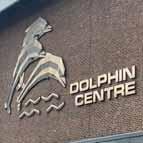
Employers will set their own entry requirements but you are likely to need 4 GCSEs at grades 2-3/D-E, including maths and English, although some employers will accept other relevant qualifications and experience.
You must be employed for a minimum of 30 hours per week in a relevant environment for the duration of the Apprenticeship.
Employers will set their own entry requirements but ideally for the level 2 you will need 4 GCSEs at grades 2-3/D-E, including maths and English.
Some employers may accept other qualifications. Mature students will be assessed on individual merit.
You must be employed for a minimum of 30 hours per week in a relevant environment for the duration of the Apprenticeship.

Employers will set their own entry requirements but you are likely to need 5 GCSEs at grade 4/C or above including maths and English, although some employers will accept other relevant qualifications and experience, including a relevant Level 2 qualification.
You must be employed for a minimum of 30 hours per week in a relevant environment for the duration of the Apprenticeship.
Employers will set their own entry requirements but ideally you will need 5 GCSEs at grade 4/C and above, including maths and English or an appropriate Level 2 qualification. Some employers may accept other qualifications. Mature students will be assessed on individual merit.
You must be employed for a minimum of 30 hours per week in a relevant environment for the duration of the Apprenticeship.
Employers will set their own entry requirements but ideally for the Level 3 apprenticeship you will need 5 GCSEs at grade 4/C and above, including maths and English or an appropriate Level 2 qualification. Some employers may accept other qualifications.
Mature students will be assessed on individual merit.
You must be employed for a minimum of 30 hours per week in a relevant environment for the duration of the Apprenticeship.
12-15 Months
15-18 Months
15-18 Months
12-18 Months
15-18 Months
Apprentices from this programme have continued on to study Level 3 AAT. Alternatively you could work as a Finance Assistant or Accounting Assistant and progress to more senior roles.
Employment opportunities include administration or business support roles or higher level apprenticeships or courses.
Students from this programme have continued on to study Level 4 AAT. Alternatively you could work as a Credit Controller or Management Accounts Clerk and progress to more senior roles
Employment opportunities include administration or business support roles or higher level apprenticeships or courses.
Employment opportunities include administration or business support roles or higher level apprenticeships or courses.
Employers will set their own entry requirements but you are likely to need 4 or 5 GCSEs at grade 4/C or above including maths and English, although some employers will accept other relevant qualifications and experience, including a relevant Level 2 qualification.
You must be employed for a minimum of 30 hours per week in a relevant environment for the duration of the Apprenticeship.

Employers will set their own entry requirements but you are likely to need 5 GCSEs at grade 4/C or above including maths and English, although some employers will accept other relevant qualifications and experience, including a relevant Level 2 qualification.
You will also need to take the CIPS ethical test online. You must be employed for a minimum of 30 hours per week in a relevant environment for the duration of the Apprenticeship.
Employers will set their own entry requirements but you are likely to need 5 GCSEs at grade 4/C or above including maths and English, although some employers will accept other relevant qualifications and experience, including a relevant Level 2 qualification.
You must be employed for a minimum of 30 hours per week in a relevant environment for the duration of the Apprenticeship.
Employers will set their own entry requirements but you are likely to have some experience in an appropriate environment, a minimum of 120 UCAS points (typically a Level 4 qualification)
and 5 GCSEs at grade 4/C or above including maths and English although some employers will accept other relevant qualifications and experience.
Experienced project managers will be considered on individual merit. This apprenticeship is likely to be a progression from a lower level role or apprenticeship, building on the knowledge and skills gained in that role or apprenticeship. You must be employed for a minimum of 30 hours per week in a relevant environment for the duration of the Apprenticeship.
Employers will set their own entry requirements but you are likely to need a minimum of at least two A-levels (or international equivalent), or a CIPS Advanced Certificate qualification, or a minimum of two years experience in a business environment.
This apprenticeship is likely to be a progression from a lower level role or apprenticeship, building on the knowledge and skills gained in that role or apprenticeship. You must be employed for a minimum of 30 hours per week in a relevant environment for the duration of the Apprenticeship.
18-24 Months
18-24 Months
15-18 Months
2 Years
18-24 Months
Successful apprentices may be eligible to apply for Associate membership of the Chartered Institute of Personnel and Development (CIPD). This apprenticeship provides a base for further development through a career path within an organisation and/or through the HR Consultant/Partner apprenticeship.
You can progress onto the Level 4 Commercial Procurement and Supply Apprenticeship, then through the Level 5 Advanced Diploma and Level 6 Professional Diploma in Procurement and Supply to achieve MCIPS status.
Students from this programme have continued on to study Level 5 CMI Leadership and Management and Level 7 Strategic Leadership and Management or progress onto management roles within the industry.
Associate project managers’ can progress to assistant project manager, junior project manager, project team leader. Some can progress to University level study. Apprentices will be eligible for progression to associate membership of the Association for Project Management (APM) upon successful completion of the apprenticeship.
Full membership can be attained through further experience and professional development.
You can progress onto the Level 5 Advanced Diploma in Procurement and Supply, and Level 6 Professional Diploma in Procurement and Supply to achieve MCIPS status.
Employers will set their own entry requirements but you are likely to need some experience in a related field and a Diploma in Accounting Level 3 or PE1, or equivalent of the senior accountancy qualifications or a UK degree in accounting although some employers will accept other relevant qualifications and experience. You must be employed for a minimum of 30 hours per week in a relevant environment for the duration of the Apprenticeship.
18-24 Months





Employers will set their own entry requirements but you are likely to need some experience in a related field and a Level 3 qualification equivalent to at least 2 A Levels, plus 5 GCSEs, including maths and English. You also need to have the ability to write to a degree level standard.
This apprenticeship is likely to be a progression from a lower level role or apprenticeship, building on the knowledge and skills gained in that role or apprenticeship. You must be employed for a minimum of 30 hours per week in a relevant environment for the duration of the Apprenticeship.
18-24 Months
Employers will set their own entry requirements but you are likely to need some experience in a related field and a Level 3 qualification equivalent to at least 2 A Levels, plus 5 GCSEs, including maths and English.
You also need to have the ability to write to a degree level standard. This apprenticeship is likely to be a progression from a lower level role or apprenticeship, building on the knowledge and skills gained in that role or apprenticeship. You must be employed for a minimum of 30 hours per week in a relevant environment for the duration of the Apprenticeship.
18-24 Months
Successful completion allows student registration with a number of UK Professional Bodies in this sector.
Typical job roles include Assistant Auditor, Assistant Management Accountant, Assistant Financial Accountant, Accounts Payable and Expenses Supervisor, Bookkeeper, Commercial Analyst, Payroll Manager, Senior Bookkeeper, Senior Financial Officer, Tax Investigations Officer, Personal Tax Assistant, Business Tax Assistant.
Successful apprentices can apply to become an Associate Member of the Chartered Institute of Personnel and Development. Chartered membership can be achieved through further qualifications or experience based assessment.

On completion of this apprenticeship, the individual will be fully competent in the role and this will give them an in depth knowledge of HR in their chosen option.
Students from this programme have continued on to study Level 7 Strategic Leadership and Management as well as management roles within the industry.






No formal qualifications are required, but a keen interest in this area is essential. This course introduces you to the hospitality industry. You will learn skills in our skills kitchen and restaurant kitchen and also develop some waiter skills in our restaurant.
Other subjects include theory , IT and tutorial. You will build up confidence and social skills helping you prepare for Level 2. You will learn to cook a variety of meals and desserts so that you can decide what path to take such as culinary skills or patisserie and confectionery. Support is available if required.


It is desirable to have achieved 3 GCSE subjects at grade D/ 3 and above, including maths or English Language. This course provides skills to bake and make restaurant desserts.
Level 2 Culinary Skills (Kitchen and Larder)
It is desirable to have achieved 3 GCSE subjects at grade D/ 3 and above, including maths or English Language. This course prepares you to work in restaurant kitchens.
You will need to have a Level 2 catering qualification. This course enables you to learn advanced cooking skills in either larder or patisserie. You will also learn how to supervise and lead a team during themed restaurant evenings.
No entry requirements . Interview required. You must have the ability to communicate with customers. You will be working for the majority of your course in the restaurant whereby you will learn how to serve meals and drinks. You will learn how to set up silver service and prepare for special occasions.
You could progress from this course onto a Level 2 catering course such as Culinary Skills or Patisserie and Confectionery. You may want to progress onto an apprenticeship such as Level 2 Hospitality Team Member Apprenticeship, Level 2 Commis Chef Apprenticeship, Production Chef apprenticeship.
You may want to work both in the kitchen and front of house serving in the Glasshouse Restaurant in which case you could progress onto the Level 2 Diploma in Food and Beverage.
Progression to Level 3 Diploma in Professional Patisserie and Confectionery, Level 3 Diploma Hospitality Supervision and Leadership or Level 3 Advanced Apprenticeship in Professional Cookery. Alternatively start a career as a Commis Pastry chef in a hotel or restaurant or within the bakery industry.
Progression to Level 3 Advanced Professional Cookery or build up additional bakery skills by completing Level 2 Patisserie and Confectionery. You can work in a Restaurant, Hotel, Care Home or School setting. If you want to travel the World you can work abroad or on a cruise ship.
Progression into employment in a Restaurant or Hotel. You may want to open your own restaurant or travel the world abroad or work on a cruise ship.
Working within the Food and Beverage sector as a professional waiter in hotels, restaurants, bars and food service outlets. You could go on to study a Level 3 in Hospitality, Leadership and Supervision.


Level 2 Commis Chef
Employers will set their own entry requirements in order for applicants to start on this apprenticeship.
Level 3 Chef de Partie
Employers will set their own entry requirements in order for applicants to start on this apprenticeship.
Employers will set their own entry requirements for those wishing to start on this apprenticeship.
Level 2 Production Chef
Employers will set their own entry requirements for those wishing to start on this apprenticeship.
1 Year
You can progress onto an Advanced Bakery Apprenticeship standard.
12-18 Months
You may progress from this apprenticeship and commence employment as a Chef de Partie or Senior Production Chef.

1 Year
You could progress from this apprenticeship into a Senior Culinary Chef role.
12-18 Months
Production chefs work as part of a team in time-bound and often challenging kitchen environments, for example; schools, hospitals, the Armed Forces, care homes and high street casual dining or pub kitchens. They report to the Senior Production chef or appropriate line manager.
Production chefs are likely to work with centrally developed standardised recipes and menus, producing food often in high volumes. They apply highly methodical organisational skills, energy, accuracy, attention to detail and are mindful of the importance of sustainability and protecting the environment.
NOTE: All Level 2 and Level 3 Childcare Courses require a clear enhanced DBS Form and Barring by Association Form. Without this you cannot be accepted onto the study programme. There is no requirement to purchase an on-line DBS prior to Applying for the course. College staff will help with your DBS application to ensure that minimum fees are paid.
There are no formal qualifications, however a keen interest in health and childcare is essential.
Level 2 Education and Childcare
4 GCSE subjects at grade D/3 and above, including English Language. Alternatively you will need a Level 1 child related qualification and a satisfactory school report. You will require a clear enhanced DBS form.
Level 3 Teaching Assistant Diploma

5 GCSE subjects with grade C/ 4 and above, including English Language or maths.
Alternatively progression from a relevant Level 2 Childcare qualification, as well as GCSE English or maths at Grade C or above. You must also supply details of two personal referees who are not relatives and the college will write to them to obtain up to date references to support your application. You will require a clear enhanced DBS form.
Level 3 Diploma in Early Years Workforce
5 GCSE subjects with grade C/ 4 and above, including English Language or maths.
Alternatively progression from a relevant Level 2 Childcare qualification, as well as GCSE English or maths at Grade C or above. You must also supply details of two personal referees who are not relatives and the college will formally write to them to obtain up to date references to support your application. You will require a clear enhanced DBS form and Barring by Association form, otherwise you will not be accepted onto this course.
We will request a school or college report and you will attend an interview at the college.
Level 3 T Level Technical Qualification in Education and Childcare
Occupational Specialism content for the Early Years Educator includes:
• Support and promote children’s play, development and early education
• Develop relationships with children to facilitate their development
• Plan, provide and review care, play and educational opportunities to enable children to progress
• Safeguard and promote the health, safety and wellbeing of children
• Work in partnership with colleagues, parents, carers and other professionals to support children’s development
5 X GCSE’s grade 4 or above (including Maths and English at 5 or above).
Or successful completion of a relevant Level 2 study programme.
1 Year 1 Year
Progression onto the Level 2 Diploma in Health or Childcare.
Progression onto Level 3 Teaching Assistant Diploma or a Level 3 Early Years course. Alternatively you can gain employment in the workforce.
1 Year
Employment in schools or progress onto the Working with Children and Young People Foundation Degree. This course carries 32 UCAS points.
1 Year 2 Years
License to practise in childcare settings.
Employment as an Early Years Practitioner or enter Higher Education for Primary/Early Years Teacher Training as UCAS points will be added to the overall achieved T level grade.
Students must achieve at least an overall Pass grade to receive UCAS points.
Level 3 Teaching Assistant You will need 5 GCSEs at grades A*-C (9-4) including maths and English.

18 Months
Level 3 Early Years Educator Apprenticeship Entry Requirements; 5 GCSES/Level 2 Qualification with Maths and English at Grade 4/C
18 Months
Employment opportunities exist within primary, special and secondary schools in both the state and independent sectors.
There will be increasing opportunities for apprentices to take on a wider range of responsibilities.
Opportunities also exist to move into other roles across the wider children’s workforce e.g. child care, play work or youth work.

Progression to full time employment as an Early Years Educator.

You will need 4 GCSEs at grade 2 or higher, including English and maths.
We will request a school or college report and you will need to attend an interview at the college.
Progressing Learners; In addition, to demonstrate Positive Engagement & progress in English and Maths, and Good Attendance overall.
Level 3 IT (Application Development (Software)
Foundation Diploma and Extended Diploma
5 GCSEs at grade 4/C or higher including at least one of Maths or English, or a relevant Level 2 IT qualification. In order to apply for the Extended Diploma you must have achieved the relevant Foundation Diploma qualification. Learners without maths and English will study these subjects as part of their study programme.
Level 3 IT (Networking/Hardware/Cyber Security)
Foundation Diploma and Extended Diploma
5 GCSEs at grade 4/C or higher including at least one of Maths or English, or a relevant Level 2 IT qualification. In order to apply for the Extended Diploma you must have achieved the relevant Foundation Diploma qualification. Learners without maths and English will study these subjects as part of their study programme.
T Level Digital Production, Design and Development (Level 3)
Five GCSEs at grades 9-4 (to include English and maths GCSEs at 9-4)
Relevant level 2 qualification at merit grade or higher (to include English and maths at level 2 or higher)
T Level Technical Qualification in Digital Support Services (Level 3)
Five GCSEs at grades 9-4 (to include English and maths GCSEs at 9-4)
Relevant level 2 qualification at merit grade or higher (to include English and maths at level 2 or higher)
1 Year
We do recommend further study by progressing onto the next level qualification, or alternatively into an apprenticeship. Career opportunities include working as a software engineer, Web Designer and IT Technician.
1 or 2 years to be discussed at interview
You can progress into a range of careers at a junior role, but we do recommend further study if you wish to progress in employment. Careers include: Computer Games Developer, Software Designer, Website/App Developer, Graphic Designer, Computer Programmer and more.
1 or 2 years to be discussed at interview
Career opportunities exist to enter the industry at junior level in many job roles, including: IT Support Technician, Network Support Technician, or Computing Forensics Engineer. We do recommend further study if you are wishing to progress within these roles.
2 Years 2 Years
This course is suitable for anyone wanting a career in software production and design. Students can progress into roles such as:
• Web developer
• Web designer
• Software developer • Computer games tester
• Computer games developer • E-learning developer

• User experience (ux) designer
• Students can also use this T Level to do a related higher-level apprenticeship or degree-level course.
This course is suitable for anyone wanting a career in digital infrastructure and support. Career options might include becoming an infrastructure technician or a role in IT support. Students can progress into roles such as:
• IT Security Co-ordinator
• IT Support Technician
Students can also use this T Level to progress to a related higher-level apprenticeship or course of study at a higher level.
For this Apprenticeship you will need GCSEs at grade A*-C, including maths and English or an appropriate level 2 qualification. Mature students will be assessed on individual merit.
You must be employed for a minimum of 30 hours per week in a relevant environment for the duration of the Apprenticeship.
You will be required to attend an interview at the college and we will request a school or college report.
We offer the Support Technician route for this Apprenticeship
2 Years
Level 4 Network Engineer or relevant position in the industry.
City and Guilds Entry Level 3 in Construction Skills (Multi trade)
No formal entry requirements, but a keen interest in the area is essential.
City and Guilds Level 1 in Bricklaying
No formal entry requirements, but a keen interest in the area is essential.
City and Guilds Level 1 in Carpentry and Joinery
No formal entry requirements, but a keen interest in the area is essential.
City and Guilds Level 1 in Electrical Installation
No formal entry requirements, but a keen interest in the area is essential.
City and Guilds Level 1 in Plastering
No formal entry requirements, but a keen interest in the area is essential.
City and Guilds Level 1 in Plumbing
No formal entry requirements, but a keen interest in the area is essential.

City and Guilds Level 2 Diploma in Bricklaying
There is no direct entry from GCSE onto this course. You will need to have completed the Level 1 Diploma in Bricklaying.
City and Guilds Level 2 Diploma in Carpentry and Joinery
There is no direct entry from GCSE onto this course. You will need to have completed the Level 1 Diploma in Carpentry and Joinery.
City and Guilds Level 2 Technical Certificate in Electrical Installation
You will need a Level 1 Diploma in Electrical Installation or 4 GCSE subjects at grade 4 and above, including English and maths. Candidates are encouraged to ensure they gain points in all subjects taken.
City and Guilds Level 2 Technical Certificate in Plumbing
There is no direct entry from GCSE onto this course. You will need a Level 1 Diploma in Plumbing and you will be encouraged to have GCSE grade 4 in Maths and English due to the nature of the subject content.
City and Guilds Level 3 Technical Diploma in Electrical Installation
There is no direct entry onto this course. You will need to have completed the Level 2 Diploma in Electrical Installation or Level 2 Technical Certificate in electrical Installation and have 4 GCSE’s Grades A*-C or equivalent.
1 Year 1 Year
Progression onto a Level 1 in a specific chosen trade.
1 Year
You can progress onto a Level 2 in Bricklaying or go onto an apprenticeship.
You can progress on to a Level 2 Diploma in Carpentry and Joinery or go on to an apprenticeship within site Carpentry or Bench Joinery.
1 Year
You can progress onto a Level 2 course in Electrical Installation or go onto an apprenticeship
1 Year
You can progress onto a Plastering apprenticeship.
Year
You can progress onto a Level 2 Diploma in Plumbing or go on to an apprenticeship.
Year 1 Year 1 Year
This course can lead to careers in the construction industry; previous students have gone on to work with local and national housebuilders.
You may wish to progress on to an apprenticeship.
This course can lead to careers in the construction industry; previous students have gone on to work with local and national housebuilders.
You may wish to progress onto an apprenticeship within site carpentry or joinery.
You can progress on to a Level 3 Technical Diploma in Electrical Installation or go on to an apprenticeship. Please be aware that you will NOT be a qualified electrician after achieving this qualification.
1 Year
You can progress onto a level 3 Apprenticeship standard in Plumbing and Heating. Please be aware that you will NOT be a qualified plumber after achieving this qualification.
Year
This course can lead to careers in the construction industry; previous students have gone on to work with local and regional electricians.
You may wish to progress onto an Level 3 advanced apprenticeship. Please be aware that you will NOT be a qualified electrician after achieving this qualification.
Level 2 Site Carpentry and Architectural Joinery (Apprenticeship Standard)
LEVEL 2 - 4 GCSE subjects at 3 points or D-E grade and above, including English Language and maths. Candidates are encouraged to ensure they gain points in all subjects taken. You will be required to take an initial assessment entry test in maths and English to determine your level.
You must also have an employer who meets the required criteria of work covered within the Apprenticeship standard. Please be aware that to achieve this qualification, you must sit and pass an end point assessment.
Apprentices must complete, or have previously completed recognised English and Mathematics Level 1 qualifications. Within the apprenticeship, learners must be working towards Level 2 English and Maths qualifications along with sitting an exam.
Level 3 Site Carpentry and Architectural Joinery (Apprenticeship Standard)
LEVEL 3 - An appropriate Level 2 Apprenticeship qualification in Site Carpentry or Bench Joinery, and GCSE grade 4 or C as a minimum in Maths and English. Apprentices must complete, or have previously completed, recognised English and Mathematics.
Level 2 qualifications. You must also have an employer who meets the required criteria of work covered within the Apprenticeship Standard. There isn’t a direct entry onto Level 3 from GCSE, you must have completed a Level 2 apprenticeship qualification prior. Please be aware that to achieve this qualification, you must sit and pass an end point assessment.
Level 2 Bricklaying (Apprenticeship Standard)

LEVEL 2 - 4 GCSE subjects at 3 points or D-E grade and above, including English Language and maths. Candidates are encouraged to ensure they gain points in all subjects taken. You will be required to take an initial assessment entry test in maths and English to determine your level.
You must also have an employer who meets the required criteria of work covered within the Apprenticeship standard. Please be aware that to achieve this qualification, you must sit and pass an end point assessment.
Apprentices must complete, or have previously completed recognised English and Mathematics Level 1 qualifications. Within the apprenticeship, learners must be working towards Level 2 English and Maths qualifications along with sitting an exam.
Level 2 Plastering (Apprenticeship Standard)
LEVEL 2 - 4 GCSE subjects at 3 points or D-E grade and above, including English Language and maths. Candidates are encouraged to ensure they gain points in all subjects taken. You will be required to take an initial assessment entry test in maths and English to determine your level.
You must also have an employer who meets the required criteria of work covered within the Apprenticeship standard. Please be aware that to achieve this qualification, you must sit and pass an end point assessment.
Apprentices must complete, or have previously completed recognised English and Mathematics Level 1 qualifications. Within the apprenticeship, learners must be working towards Level 2 English and Maths qualifications along with sitting an exam.
Duration is typically a minimum of 24 months before the gateway period.
The construction industry is one of the biggest and most diverse in the UK. Apprenticeships are a way to develop your skills and qualifications whilst working to build a sustainable career in a reputable trade.
Duration is typically a minimum of 15 months, before the gateway period.
The construction industry is one of the biggest and most diverse in the UK. Apprenticeships are a way to develop your skills and qualifications whilst working to build a sustainable career in a reputable trade. You may consider to progress onto Level 4 HNC in Building Studies.
Duration is typically a minimum of 30 Months. This does not include the EPA period.
The construction industry is one of the biggest and most diverse in the UK. Apprenticeships are a way to develop your skills and qualifications whilst working to build a sustainable career in a reputable trade. You may consider to progress onto Level 4 HNC in Building Studies.
Typically minimum of 36 Months. This does not include the EPA period.

City and Guilds Level 3 Apprenticeship in Plumbing and Heating (Apprenticeship Standard)
GCSE grade 4 or C as a minimum in maths and English. Functional Skills Level 2 maths, would also typically be accepted. You will be required to take an initial assessment entry test in maths and English to determine your level.
You must also have an employer who meets the required criteria of work covered within the Apprenticeship standard. Please be aware that to achieve this qualification, you must sit and pass an end point assessment.
City and Guilds Level 3 Electrical (Installation) 5357-03 (Apprenticeship Standard)

You will need 5 GCSE subjects with 4 points or C grade and above including 4 points or C grade in English Language and maths. Candidates are encouraged to ensure they gain points in all subjects taken. You will be required to take an initial assessment entry test in maths and English to determine your level.
You must also have an employer who meets the required criteria of work covered within the Apprenticeship standard.
Please be aware that to achieve this qualification, you must sit and pass an end point assessment (AM2) at the end of your qualification.
Typically a minimum 48 months, however this maybe reduced depending on prior subject specific qualification. This does not include the EPA period.
You can progress as a Heating and Ventilating Engineer or progress onto a Level 4 in Building Studies or a HNC in Building Services Engineering.

Typical Duration for this apprenticeship is 48 Months. This does not include the EPA period.
Following a successful completion of your AM2 End Point Assessment you will then be a qualified Electrician.
We will offer learners both Award and Diploma level of this course.
Award; has no formal entry criteria.
Diploma; 4x GCSE Grade 1+ (Inc Eng & Maths)
Award learners will be given the chance to attempt Diploma level modules.
Progressing Learners; In addition, to demonstrate Positive Engagement & progress in English and Maths, and Good Attendance overall.
Candidates are encouraged to ensure they gain points in all subjects taken. A keen interest in the art and media industry is essential. A good level of ICT knowledge is required.
You do not have to start your Art journey at Level 1. You could be able to join directly at Level 2 or Level 3 and please ensure you check all entry criteria before you apply or enrol to your chosen course.
This course is designed as a full time study programme route for 16-18 year olds only, or those who hold an EHC plan. This course is not suitable for adults and additional charges will apply to those adults who wish to pursue this route of study.
4x GCSE Grade 2+ (Inc Eng & Maths) or Level 1 Diploma Art, Design & Media Pass+.

Progressing Learners from within College; In addition, to demonstrate Positive Engagement & progress in English and Maths, and Good Attendance overall.
This course is designed as a full time study programme route for 16-18 year olds only, or those whom hold an EHC plan. This course is not suitable for adults and additional charges will apply to those adults who wish to pursue this route of study.
This is a general creative practise course in which learners later specialise in Fine Art, Graphics or Photography.
4 GCSE subjects with 4 points or C grade and above, including 4 points or C grade in English or maths, or successful completion of a Level 2 transition study programme at Darlington College. Candidates are encouraged to ensure they gain points in all subjects taken.
It is recommended that students have a minimum of 5 × GCSEs at grade 4 or grade C, including Maths and English, and one A level, or equivalent Level 3 qualification, preferably in a relevant creative subject.
This course is designed to help you make the step towards Level 2 study. In particular, providing a clear and transparent progression route to Level 2 Art and Design and Level 2 Creative Digital Media.
1 Year
The aim of this course is to provide students with the basic skills to allow them to progress into level 3 qualifications in;
• Creative practice
• Engineering
• IT
• Arts
• Level 3 Apprenticeship standards
• You can also progress onto other relevant Level 3 qualifications such as teaching support.
1 year (Diploma) or 2 years (Extended Diploma), depending on your progression plans. This can be discussed at enrolment.
The intent of this study programme is for direct progression into Higher Education and on to successful careers in graphic design, product design, web design, publishing, illustrating, art therapy or teaching, advertising, photographer and art direction.
1 Year
Typical progression will be into Higher education. This course also allows progression onto other vocational courses, employment or apprenticeships.


5x GCSE Grade 4+ (Including Maths) or Level 2 Diploma Engineering Pass+ (Inc Maths unit). It is essential a learner has achieved GCSE Maths 4+

Progressing Learners from within College; In addition, to demonstrate Positive Engagement & progress in English and Maths, and Good Attendance overall.
You must pass + Diploma (Year 1) to progress onto the Ext Diploma (Year2).
Successful completion opens the door to a wealth of opportunity in the engineering sector. Students will be well-placed to progress to university full-time or to a higher apprenticeship, where they will typically continue their higher education studies part time at Level 4.
Students can also gain access to employment directly. Typical job roles include: Mechanical Fitter, Maintenance Engineer, Manufacturing Engineer, Electrical Engineer, Electronics Engineer, Sheet Metal Worker, CNC Operator, Welder.
4x GCSE Grade 4+ (Inc Eng & Maths). Suitable Level 2 Engineering qualifications will also be considered, however completion of English and Maths is essential at a minimum of Level 2. Candidates are encouraged to ensure they gain points in all subjects taken.
Up to 36 months (with an additional 6 months added to complete End Point Assessment).
All learners must engage in a minimum of 20% of their working contract Off The Job (OTJ) which allows for dedicated time put aside to complete academic work.
Upon completion of the Advanced Apprenticeship you can progress onto Higher Apprenticeships or higher qualifications.
Suitable roles for this apprenticeship include Maintenance & Operations Engineering Technicians, Electrical Technicians; Mechanical Technicians, Plant Operations technician, Process Control Technician.
4x GCSE Grade 4+ (Inc Eng & Maths). Suitable Level 2 Engineering qualifications will also be considered, however completion of English and Maths is essential at a minimum of Level 2. Candidates are encouraged to ensure they gain points in all subjects taken.
Up to 36 months (with an additional 6 months added to complete End Point Assessment).
All learners must engage in a minimum of 20% of their working contract Off The Job (OTJ) which allows for dedicated time put aside to complete academic work.
Upon completion of the Advanced Apprenticeship you can progress onto Higher Apprenticeships or higher qualifications. Suitable roles for this apprenticeship include: Metal Fabricator and Welding Technician.
In order to optimise success candidates will typically have 5 GCSE’s at Grade C ( Grade 4/5 in the new numerical GCSE grading system) or above, including Mathematics, English and a Science, Technology or Engineering related subject, or 90+ credits in an Engineering BTEC at level 3.
*(As further guidance, the level of Mathematics has an advisory GCSE level of grade B (Grade 5/6 in the new numerical GCSE grading system)
2 Years
Level 5 courses (such as HND in Engineering), apprenticeship or employment.
state of the art Darlington College has invested heavily in Mechanical and Electrical Engineering resources, including our new Robotics and Automation Manufacturing lab, technical support workshops, welding workshop and a new Electronics lab (including Electric engine training rigs)


4x GCSE Grade 2+ (Inc Eng & Maths) or a Level 1 Diploma. We will request a school or college report.
Progressing Learners from within College; In addition, to demonstrate Positive Engagement & progress in English and Maths, and Good Attendance overall.
This course is designed as a full time study programme route for 16-18 year olds only, or those whom hold an EHC plan. This course is not suitable for adults and additional charges will apply to those adults who wish to pursue this route of study.
Level 3 T Level in Engineering in Maintenance, Installation and Repair; Mechanical 5x GCSE Grade 4+ (Inc 5+ English & Maths) or successful completion of a Level 2 transition study programme at Darlington College (Inc 5+ GCSE English & Maths).
Candidates are encouraged to ensure they gain points in all subjects taken.
The majority of students progress to Level 3 Full Time Engineering or onto a Level 3 apprenticeship.
Typical job roles include: Mechanical Fitter, Maintenance Engineer, Manufacturing Engineer.
T Levels will provide several progression options, including skilled employment, an apprenticeship and higher education.
To help T Level students get into higher education, UCAS tariff points will be allocated to T Levels. UCAS points will only be allocated to the overall T Level grade. Students must achieve at least an overall pass grade to receive UCAS points. The top grade, Distinction* (A* on the core and distinction in the Occupational Specialism), is the equivalent to AAA* at A-level and will gain 168 UCAS tariff points.

4x GCSE Grade 4+ (Inc Eng & Maths). Suitable Level 2 Engineering qualifications will also be considered, however completion of English and Maths is essential at a minimum of Level 2. Candidates are encouraged to ensure they gain points in all subjects taken.
Up to 36 months (with an additional 6 months added to complete End Point Assessment).
All learners must engage in a minimum of 20% of their working contract Off The Job (OTJ) which allows for dedicated time put aside to complete academic work.
Upon completion of the Advanced Apprenticeship you can progress onto Higher Apprenticeships or higher qualifications.
Suitable roles for this apprenticeship include Technical Support Technician, Mechanical Technician and Operations Technician.
4x GCSE Grade 4+ (Inc Eng & Maths). Suitable Level 2 Engineering qualifications will also be considered, however completion of English and Maths is essential at a minimum of Level 2. Candidates are encouraged to ensure they gain points in all subjects taken.
Up to 36 months (with an additional 6 months added to complete End Point Assessment).
All learners must engage in a minimum of 20% of their working contract Off The Job (OTJ) which allows for dedicated time put aside to complete academic work.
Upon completion of the Advanced Apprenticeship you can progress onto Higher Apprenticeships or higher qualifications.
Suitable roles for this apprenticeship include: Maintenance & Operations, Engineering Technicians, Electrical Technicians; Mechanical Technicians, Plant Operations Technician, Process Control Technician.


No formal qualifications are required but a keen interest in the subject is essential and a satisfactory school report.
It is desirable that you achieve 4 GCSE subjects at level 3 or D grade and above. Alternatively you will need a Level 1 Diploma in Hairdressing.
No formal qualifications required. This is a 1 day training course and the study programme then allows you to choose an additional part time course such as Level 3 Hairdressing if you already have Level 2 Women’s Hairdressing or Level 2 Beauty
You need to have successfully completed a Level 2 Diploma in Women’s Hairdressing. This course is part time but you can also study another part time course such as Level 2 Barbering or Level 2 Beauty Therapy this would then form a full-time study programme.
It is desirable to achieve 4 GCSE subjects at 3 points or D grade and above including English/ maths. Alternatively you will need a Level 1 qualification.

You will need the Level 2 Diploma in Beauty Therapy.
You will need a Level 2 Beauty Therapy qualification or Level 2 Nail Services qualification
You can progress onto the Level 2 Diploma in Hairdressing or Level 2 Diploma in Beauty Therapy depending on the route you want your career to take.
You can progress on to a Level 3 qualification or onto an apprenticeship



Barbers shop, own business, freelance.
Hair salon, own business, freelance hairdresser. Cruise ships, working abroad or in TV and media.
You can progress onto a range of beauty therapy qualifications at Level 3 or develop a career as a Beauty Therapist, Spa Therapist, Salon Manager/ Owner or work on a cruise liner or in film/TV. Alternatively you can go on to become an apprentice. The course includes, facials, waxing, lash and brow treatments, make-up, manicures and pedicures.
You can become a Beauty Therapist, work on a cruise liner or in a spa, or as a Salon Manager/Owner. You could also progress on to an Apprenticeship within a beauty salon or health spa. The course includes massage, face and body electrotherapy treatments.
Opportunities include working as a Nail Technician in health spas or cruise liners. You may prefer to set up your own nail studio business or work free lance as a mobile technician. The course includes gels, acrylics and nail art.
You will need 4 GCSEs at grade C-E or grade 4-2. A grade C/4 in either English or maths is required, or a Level 1 Hairdressing qualification.
For the Level 3 Apprenticeship you will need a Level 2 qualification in hairdressing and achieved both GCSE English and maths at grade C/4 or above.


You should have achieved both GCSE English and maths.
Full Time Courses and Apprenticeship Guide 2023/24

We recommend that you should have completed a Level 2 Apprenticeship in Beauty Therapy or Nail Services, or hold a Level 2 Diploma in Beauty Therapy or Nail Services. For the Level 3 Apprenticeship you will need to achieve both GCSE English and maths at grade C/4 or above.
2 Years 1 Year
1 Year
1 Year
Career paths include working as a hair stylist, on a cruise liner or in theatre/TV.
Career paths include working as a hair stylist, on a cruise liner or in theatre/TV. You may want to set up your own business or work freelance.
Will provide progression onto Level 3 Advanced Beauty Therapy.
Working in a Health and Beauty Spa, Hotel, Cruise ship or Salon. You may like to set up your own business or work freelance as a mobile therapist to suit your own hours. Some students take their skills to travel abroad as the English qualifications are recognised and highly reputable.
There are no formal qualifications, however a keen interest in health and childcare is essential.
Level 2 Extended Diploma in Health and Social Care
4 GCSE subjects at Grade 3/D or above, Or an appropriate Level 1 qualification. You will also need to attend an interview at the college and supply details of two personal referees to support your application. A clear enhanced DBS form is required, otherwise you will not be accepted onto the course.
NCFE Cache Level 3 Diploma in Healthcare Support
5 GCSE subjects with 4 points or C grade and above, including 4 points or C grade in GCSE English or an appropriate Level 2 qualification (at a merit if graded) and a satisfactory school report.
You must also supply details of two personal referees who are not relatives, so that the college can formally write to them to obtain up to date references to support your application. You will require a clear enhanced DBS form, otherwise you will not be accepted onto this course.
4-5 GCSE subjects with C/ 4 grade and above, including English and preferably maths, or an appropriate Level 2 qualification at a merit grade. You will also need to supply details of two personal referees (non family) to support your application.
1
Progression onto the Level 2 Diploma in Health or Childcare.
NCFE Cache Level 3 Extended Diploma in Health and Social Care
You will need to have completed the Level 3 Certificate in health and social care before applying.
1
You could progress on to the Level 3 qualification. Alternatively, you will have the skills required to pursue a career within the health sector such as an Assistant Dietician, Maternity Support Worker, Medical Laboratory Assistant, Occupational Health Therapy Assistant, Healthcare Assistant or Physiotherapy Assistant.
This qualification will enable you to progress into employment in the healthcare sector as it gives you a license to practice. You may also be able to progress onto the Level 3 Certificate/Extended Diploma in Health and Social Care.
CACHE Level 2 Certificate in Preparing to Work in Healthcare and Schools.
Pre 16 students can complete this course with no formal qualifications. School leavers require 2 GCSE subjects at Grade 3/D or above, or an appropriate Level 1 qualification.
T Level Technical Qualification in Health (Level 3)
Five GCSEs at grades 9-5 (to include English and maths GCSEs at 9-5).

Relevant level 2 qualification at merit grade or higher (to include English and maths at level 2 or higher)
1
This is the first year of a two year programme, however you need to complete all elements of the first year in order to progress onto the second year. This course is ideal for those students who would like to progress onto university and into a career such as Nursing, Paramedic Science, Midwifery or a health related career or social work qualification.
This first year carries a maximum of 84 UCAS points, which can be carried over onto the second year to gain the full allowance to apply for University through UCAS. Those not wanting to progress onto university can progress into health care related jobs such as health care assistant, Medical Laboratory Technician or Occupational Health Assistant.
By progressing onto the Extended Diploma, this will equip you with the essential knowledge and skills required to progress to Higher Education in a related field of study.
Possible future careers include being a Midwife, Adult/Child Nurse, Psychologist, Sociologist, Criminologist, Social Worker, Lab Technician or Paramedic. This qualification carries a maximum of 168 UCAS points.
1
This qualification will enable you to progress into employment in the healthcare sector as it gives you a license to practice. You may also be able to progress onto one of our other courses, such as the Level 3 Certificate/ Extended Diploma in Health and Social Care or Level 2 Teaching Assistant course.
Following successful completion of this T Level in Health, the natural progression route is to continue studying through an apprenticeship, to study a related subject at university or go into employment. Careers in the health sector can include:
• Ambulance Care Assistant
• Emergency Care Assistant • Healthcare Assistant • Care Worker • Palliative Care Assistant • Dental Nurse
Students can also use this T Level to progress to a related higher-level apprenticeship or course of study at a higher level.


You will need to have grade D/3 in GCSE maths and English or equivalent. You will also need to sit the Level 2 exam for maths and English by the end of the Apprenticeship.
Be working in an appropriate job role or be willing to find suitable employment before starting the apprenticeship.
Both Maths and English at GCSE grade C/4 or equivalent. Attend an interview at the college and with the employer. You will require a clear enhanced DBS form, otherwise you will not be accepted onto this apprenticeship.

1 Year 18-24 Months
You could progress onto a Level 3 Apprenticeship or into full time employment within the sector.
You could progress on to a wide range of job roles depending on the pathway taken. Employment opportunities include a Senior Care Support Worker in a residential setting/supported living/day services, or a Senior Healthcare Assistant in a community and primary care environment.
NOTE: All Level 2 and Level 3 Healthcare Courses require a clear enhanced DBS Form. Without this you cannot be accepted onto the study programme. There is no requirement to purchase an on-line DBS prior to Applying for the course. College staff will help with your DBS application to ensure that minimum fees are paid.
Employers will set their own entry requirements, but ideally you will need 5 GCSE subjects with C/4 grade and above, including English Language, or ideally 2 A Levels or a Level 3 Diploma in Creative Media. Mature students will be assessed on individual merit.
You will be expected to pass the NCTJ entrance test for this course.
You must be employed for a minimum of 30 hours per week in a relevant environment for the duration of the Apprenticeship
Employers will set their own entry requirements, but ideally you will need a regulated Diploma in Journalism qualification; achieved a degree (any subject); or completed the Junior Journalist, Apprenticeship and 5 GCSE subjects with C/4 grade and above, including English Language.

You will be expected to pass the NCTJ entrance test for this course.

You must be employed for a minimum of 30 hours per week in a relevant environment for the duration of the Apprenticeship.
After successful completion of the NCTJ Diploma in Journalism and approximately 18 months as a Junior Reporter, you may progress to the National Qualification in Journalism Examinations (NQJ), which allows progression to the role of Senior Reporter.
After successful completion of the NCTJ National Qualification in Journalism (NQJ) Level 6 roles could include Senior journalist, Senior reporter, Broadcast journalist, Content editor, Digital editor, Audience relationship manager, Features editor, Multimedia reporter, Video journalist.
It is desirable to have achieved 4 GCSEs at grade 3/D grade and above, including English or maths. Alternatively you will need a relevant Level 1 qualification. Learners without maths and English will study these subjects as part of their study programme.
Level 2 Award in Creative Media Production and Technology
It is desirable to have achieved 4 GCSEs at grade 3/D grade and above, including English or maths. Alternatively you will need a relevant Level 1 qualification. Learners without maths and English will study these subjects as part of their study programme.
Level 3 Creative Media Production and Technology (Computer Games Development) Foundation Diploma and Extended Diploma
5 GCSEs at grade 4/C or higher including English, or a relevant Level 2 Media qualification. In order to apply for the Extended Diploma you must have achieved the Diploma qualification. Learners without maths and English will study these subjects as part of their study programme.
Level 3 Creative Media Production & Technology (Film & TV) Foundation Diploma and Extended Diploma
5 GCSEs at grade 4/C or higher including English, or a relevant Level 2 Media qualification. In order to apply for the Extended Diploma you must have achieved the Diploma qualification. Learners without maths and English will study these subjects as part of their study programme.

Employers will set their own entry requirements, but ideally you will need 4 GCSE subjects with C/4 grade and above, including English Language. Mature students will be assessed on individual merit.
You must be employed for a minimum of 30 hours per week in a relevant environment for the duration of the Apprenticeship.
You can progress onto Level 3 diploma in esports.
1 Year
You can progress on to more specialist Level 3 media courses.
1 or 2 years to be discussed at interview.
Following the successful completion of this course students go on to Higher Education to study computer games design, visual effects, computer games programming or 3D animation.
1 or 2 years to be discussed at interview.
Following the successful completion of this course students go on to Higher Education, an NCTJ Diploma in Journalism or go on to become Screenwriters, Video Editors or Researchers.
After successful completion of the Junior Content Producer Apprenticeship you may progress into Content Creation/Development roles at more senior levels across the industry, including with digital agencies, broadcasters and publishers.
5 GCSE subjects with a 3 or D grade and above, including a 3 or D grade in English Language, maths and a science based subject. Candidates are encouraged to ensure they gain points in all subjects taken.


5 GCSE subjects with a 4 or C grade and above, including a 4 or C grade in English Language, maths and a science based subject. Candidates are encouraged to ensure they gain points in all subjects taken. You can also progress from a Level 2 qualification in Applied Science.
1 Year Programme
Students who have completed this course have gone on to undertake careers in criminology, psychology or work in a laboratory. Others that have completed the Extended Diploma have gone on to study in Higher Education and read specialist science based degrees in nursing, pharmaceutical science, forensics and veterinary nursing, biology, chemistry or biomedical science.
You will be working in industry within a laboratory setting. You will have grades C/4 or above in English, maths and science.
You will be required to take an initial assessment entry test in maths and English to determine your level. You must also have an employer who meets the required criteria of work covered within the Apprenticeship standard. Please be aware that to achieve this qualification, you must sit and pass an end point assessment.

24 Months Minimum (excluding EPA period).
Completion of the Advanced Apprenticeship will allow for progress onto Higher Apprenticeships or higher qualifications.
Progress to the Level 3 Applied science qualification.NCFE Level 3 Diploma in Sport and Physical Activity (Pathway - Sport and Exercise Science).
Football option available through Martin Gray Football Academy
5 GCSE subjects with 4-9 points or C grade and above, including either English or Maths. These qualifications are designed for learners aged 16 and over and provide them with the knowledge, skills and understanding required within the sport and physical activity sector. They will also allow learners to gain transferable skills that can be applied to the workplace or further study.
NCFE Level 3 Extended Diploma in Sport and Physical Activity (Pathway - Sport and Exercise Science).
Football option available through Martin Gray Football Academy
Successful completion of the NCFE Level 3 Diploma in Sport and Physical Activity (Pathway - Sports and Exercise Science).
BTEC Level 3 National Extended Certificate in Sports Coaching.
Football option available through Martin Gray Football Academy.
5 GCSE subjects at grade 4 or higher including either English or Maths.

These qualifications are designed for learners aged 16 and over and provide them with the knowledge, skills and understanding required within the sport and physical activity sector. They will also allow learners to gain transferable skills that can be applied to the workplace or further study.
BTEC Level 3 National Diploma/ Extended Diploma in Sports Coaching and Development.
Football option available through Martin Gray Football Academy
Successful completion of the BTEC Level 3 National Extended Certificate in Sports Coaching.
Higher Education: This programme provides students with UCAS points; the key to entering University courses. In order to obtain the highest number of points it is recommended that you undertake the NCFE Level 3 Extended Diploma in Sport and Physical Activity.
Successful learners can also find employment within the Sports Industry. If you take up the football option you must also successfully complete a football trial with Martin Gray Football Academy before being selected.
This course creates a pathway to Higher Education from which students can progress into Teaching, Physiotherapy, Coaching, Sports Scientist, Sports Therapy, Sports Development, and Massage Therapy.
Successful learners can also find employment within the Sports Industry. If you take up the football option you must also successfully complete a football trial with Martin Gray Football Academy before being selected.
The Pearson BTEC Level 3 National Extended Certificate in Sports Coaching is intended for post-16 learners who want to progress directly to employment in an assistant coaching role. The qualification is also suitable for those wishing to progress to higher education, where learners would have the added advantage of using it to obtain part-time employment while studying.
The qualification has been developed in consultation with employers and professional bodies. This ensures that the content is appropriate and consistent with current industry practice to enable learners to enter employment directly in a sports coaching role. Higher-education institutions have been consulted to ensure that the qualification allows appropriate progression for those aspiring to higher-level study. If you take up the football option you must also successfully complete a football trial with Martin Gray Football Academy before being selected.
The Pearson BTEC Level 3 National Diploma/Extended Diploma in Sports Coaching and Development is intended for post-16 learners who want to progress directly to employment, including self-employment, in sports coaching and development roles. The extension, breadth and depth of optional units in this qualification give learners employment opportunities for working with participants of all ages, from children in primary and secondary schools, to adults of all ages.
Possible job roles include community coach, sport-specific school coach, sport-specific after-school coach and weekend multi-sports holiday coach. Learners will also have the skills and expertise to work with beginners up to high-level performers. They will be able to work in the role of club sports coach, progressing to working with elite performers and in sport development programmes in many capacities.
This qualification is also suitable for those wishing to progress to higher education, where learners have the added advantage of using the qualification to help them obtain part-time employment while studying. The course attract UCAS points and is recognised by higher-education providers as meeting entry requirements for many related degree programmes, such as a BA (Hons) in Sports Coaching and Development and a BA (Hons) in Sports Management. Learners should check entry requirements for degree programmes with providers.
Level 3 Outdoor Activity Leadership (including Industry recognised Awards & Qualifications and NCFE Level 3 Certificate in Sport & Physical Activity (Outdoor))
4 GCSE subjects with grade 4 / C and above including English or maths. Candidates are encouraged to ensure they gain points in all subjects taken. You should also be able to swim 25 metres. In order to apply for the year 2 Diploma you must have achieved the Certificate qualification.
1 year with possibility of a second year dependent on numbers.
To be discussed at interview.
This dynamic study programme provides students with the opportunity to acquire substantial knowledge and vocational expertise for the outdoor industry, whilst gaining National Governing Body awards/ qualifications from British Canoeing and Sports Leaders UK (for example). It also attracts UCAS points which allow students to progress on to higher education (e.g. BA (Hons) Outdoor Leadership / BA (Hons) Outdoor Education and Foundation degrees). Practical units will make use of the region’s countryside and indoor adventure venues to develop leadership skills in disciplines such us kayaking, canoeing, navigation, mountain biking and rock climbing.
Theoretical units will provide the technical knowledge required to succeed in coaching and leadership. Having studied on this programme, students have moved on to become self-employed elite level Outdoor leaders and coaches, Expedition leaders, Teachers and even film stuntmen! For more success stories see Adventure Darlington on Facebook.
To be considered for this programme you must possess a Level 3 Personal Training qualification.
For the Level 4 Massage element you must hold a Level 3 Sports Massage or an equivalent. You must be 16+ years old and you will need 4 GCSEs at grade 3 or grade D-E including English and maths and be able to communicate to a Level 3 standard. A good level of ICT is advantageous.
The course requires physical exertion and participation is essential, therefore, a degree of physical fitness is necessary.
Level 3 Gym Instructing & Personal Training
Within the course you will study and qualify in Level 3 Extended Diploma in Personal Training This Includes:
Level 2 Fitness Instruction (Gym), Instructing Kettlebells, Instructing Circuits and Instructing Studio Cycling, Level 3 Personal Training, with Nutrition for Sport & Exercise Performance and a Level 3 Diploma in Sports Massage Therapy.
You must be 16+ years old and you will need 4 GCSEs at grade 3 or grade D-E including English and maths and be able to communicate to a Level 2 standard. A good level of ICT is advantageous.

Some experience of gym-based exercises, including free weights, is highly recommended. The course requires physical exertion and participation is essential, therefore, a degree of physical fitness is necessary.
1 Year 1 Year
Progression straight in employment in the health and fitness indistry and or to Higher Education. You can also complete further specialist Level 4 qualifications.
You can progress straight employment within the fitness industry as a Personal Trainer/Sports Massage Therapist or progress to the Level 4: Advanced Training with Strength and Conditioning.
There are no specific entry requirements. This course provides an introduction into the requirements of working in the sports industry. It will enable learners to build confidence and help them prepare for their Level 2 Diploma in Sport. Learners will gain basic sports skills within the Gym and Sports Studio. They will learn independent skills and group activities.
Progression options could lead to sports coaching, personal fitness or outdoor activities. This Study programme also includes theory , IT , English and Maths . There will be opportunities to gain 1-1 support from the progression coach and additional support may be provided if required.
NCFE Level 2 Diploma in Sport

You will need 4 GCSEs at 3 points or grade D-E including English and maths or a level 1 qualification in the relevant area. You will gain skills working in the gym and sports studio. The programme also includes theory, IT and 1-1 tutorials. Support can be offered if required. This programme helps to progress you to level 3.
1 Year
You can progress to the Level 2 sport programme, you have a choice of the Fitness route or General Sport route.
NCFE Level 2 Diploma in Sport (with Football at MGFA)
You need 5 GCSE’s at 3 points or D-E grade and above, including English and maths, or a Level 1 qualification in sport. We will request a school or college report, and you attend an interview at the college.
You must be an elite level footballer and also successfully complete a football trial with Martin Gray before being selected. The course also includes learning skills within our gym and sports studio. Other subjects include theory, IT and 1-1 tutorials.
1 Year
Students who have completed this course have gone on to become;
• Gym attendants
• Leisure Attendants
• Sports Coaches
There is also an option to progress on to a Level 3 Sport and Exercise Science Course, L3 Sport Coaching or a Level 2/3 Gym Instructors/Personal Training Course at Darlington College

Students who have completed this course have gone on to become;
• Gym attendants
• Leisure Attendants
• Sports Coaches
There is also an option to progress on to a Level 3 Sport and Exercise Science Course, or a Level 2/3 Gym Instructors/ Personal Training Course at Darlington College. We also offer progression onto the L3 Sport Coaching with Football, in conjunction with the Martin Gray Football Academy.


It is desirable to have achieved 4 GCSEs at grade 2 or 3/D grade and above, including English and maths. Alternatively you will need a relevant Level 1 qualification. Learners without maths and English will study these subjects as part of their study programme.

4 GCSEs at grade 4/C or higher, including maths or English, or a relevant Level 2 Travel and Tourism qualification. In order to apply for the Extended Diploma you must have achieved the Introductory Diploma qualification. Learners without maths and English will study these subjects as part of their study programme.
You can progress on to the Level 3 Introductory Diploma, or seek work in UK hotels, visitor attractions, tourism and travel agencies.
1 or 2 years to be discussed interview
Students who have completed this course have gone on to work as Tour Leaders at Camp America, airport ground staff at Teesside airport, Travel consultant at Hays Travel or Holiday Representative with TUI. Other students have progressed onto the Extended Diploma programme and then university to study International Hospitality and Tourism management.



Employers will set their own entry requirements, but ideally you will need 4 GCSEs at grade 4/C and above, including maths and English or an appropriate level 2 qualification. Mature students will be assessed on individual merit.
You must be employed for a minimum of 30 hours per week in a relevant environment for the duration of the Apprenticeship
Employers will set their own entry requirements, but ideally you will need 4 GCSEs at grade 4/C and above, including maths and English or an appropriate level 2 qualification. Mature students will be assessed on individual merit.
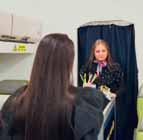
You must be employed for a minimum of 30 hours per week in a relevant environment for the duration of the Apprenticeship.
18 Months
18 Months
Examples of job roles include; Hotel Conference & Events; Customer Service Front of House, Marketing and Tourism.
Progress within the industry into leadership or specialist travel roles and onto a higher level of training or apprenticeship in management.
*Student trips will be arranged on a regular basis to experience various Travel and Tourism attractions and work placement agreed. Previous students have visited UK destinations such as, Beamish Museum, York, Newcastle Airport and Edinburgh Christmas Market and also had the opportunity to visit overseas destinations of Disneyland Paris, Barcelona and New YorkThere are no formal requirements for this course, however candidates should have an interest in the uniformed services. You will be required to attend an interview and we will request a report from school/college. You will be required to purchase a uniform and will also need basic learning materials.
A college bursary may be available to fund this. You will need to be determined, reliable and focused.
There are no formal entry requirements for this course, however candidates should have an interest in the uniformed services.
You will be required to attend an interview at the college and we will request a school or college report.
You will be required to purchase and wear a uniform whilst at college and will also need basic learning materials, the college bursary may be available to fund this.
Further requirements will include sports kit, which includes running trainers and outdoor footwear.
You will need to be determined, reliable and focused. Good communication and interpersonal skills are desirable but not essential as they will be developed throughout the course, along with fitness, leadership and teamwork.
You will need 4 GCSE passes at 3 points or grade D and above, including English, or a Level 1 vocational qualification in a relevant subject area.

You will be required to attend an interview at the college for all courses and Apprenticeships and we will request a school or college report.
You will be required to purchase and wear a uniform whilst at college and will also need basic learning materials.
Further requirements will include sports kit, which includes running trainers and outdoor footwear.
You will need to be determined, reliable and focused. Good communication and interpersonal skills are desirable but not essential as they will be developed throughout the course, along with fitness, leadership and teamwork.
1 Year 1 Year
This course will help you improve your prospects in jobs within the Army, Royal Navy, Royal Marines, RAF, Fire and Police Services and HM Customs and Excise and prison service and to progress onto the Level 3 Diploma.
This course will help improve your prospects in jobs within the Army, Royal Navy, Royal Marines, RAF, Fire and Police Services and HM Customs and Excise. Students with a Merit grade or above could progress onto the Level 2 Uniformed Public Service course.
1 Year
This course will help improve your prospects in jobs within the Army, Royal Navy, Royal Marines, RAF, Fire and Police Services and HM Customs and Excise. Students with a Merit grade or above could progress onto the Level 3 Uniformed Public Service course.


4 GCSE’s at grade C/4 and above, including in English and maths (a grade 3/D in maths may be acceptable pending a discussion with course tutors), or the Level 2 Diploma in Public Services at Distinction grade and English language 4 or above.

You will need to have completed the Level 3 National Foundation Diploma in Uniformed Protective Services.
You will need 4 GCSE’s at grade C/4 and above, including in English language and Maths, or a Level 2 Diploma at Distinction grade and English language and Maths grade 4 or above.
After successful completion of this course you could progress onto the Level 3 Diploma in Public Uniformed Services or into careers within the Armed Forces, the Emergency Services or other Public Services.
Successful students can progress onto the FdA Public Services at Darlington College or a variety of courses in HE such as: Psychology and crime, Criminological theory, Criminal justice system, Contemporary police and policing, Police procedure and professional ethics, High risk and serious offenders, Work-based learning in policing and criminal justice.
On completion of this course you can progress into employment such as the Armed Forces, Police Service, Fire & Rescue Services, HM Prison Service, youth work, private security protection, local government.
This qualification carries a maximum of 168 UCAS points.
After successful completion of this course you will be able to progress onto the 2nd year Diploma course, access higher education to study subjects such as Criminology, Sociology, Psychology, Criminal Justice, Social and Public Sector Development, Policing, Youth and Community Studies and Law. Career Opportunities: These are often available within the criminal justice system such as the police, prison and probation service, youth work, support work in sectors such as women’s refuges, civil services, housing, community worker and social worker.






Thursday 20th October 2022, 5.30pm-7.30pm
Wednesday 23rd November 2022, 5.30pm-7.30pm
Thursday 19th January 2023, 5.30pm-7.30pm
Tuesday 21st March 2023, 5.30pm-7.30pm



Monday 8th May 2023, 5.30pm-7.30pm (Higher Education & Life Skills Event)


Monday 3rd July 2023, 3.30pm-6.30pm (Summer Open Event)
